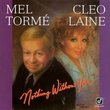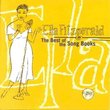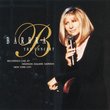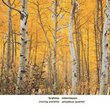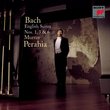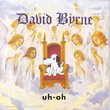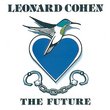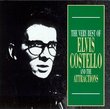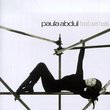| All Artists: Gioachino Rossini, Riccardo Chailly, Cecilia Bartoli, William Matteuzzi, Michele Pertusi, Gloria Banditelli, Enzo Dara, Alessandro Corbelli, Fernanda Costa Title: Rossini - La Cenerentola / Bartoli, Dara, Matteuzzi, Corbelli, Pertusi, Chailly Members Wishing: 0 Total Copies: 2 Label: Decca Release Date: 10/12/1993 Genre: Classical Style: Opera & Classical Vocal Number of Discs: 2 SwapaCD Credits: 2 UPC: 028943690225 |
Search - Gioachino Rossini, Riccardo Chailly, Cecilia Bartoli :: Rossini - La Cenerentola / Bartoli, Dara, Matteuzzi, Corbelli, Pertusi, Chailly
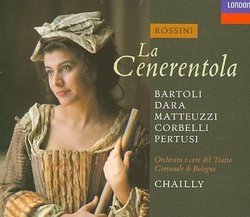 | Gioachino Rossini, Riccardo Chailly, Cecilia Bartoli Rossini - La Cenerentola / Bartoli, Dara, Matteuzzi, Corbelli, Pertusi, Chailly Genre: Classical
We live in a golden age for Rossini singing, and this recording offers considerable proof of it. Although she occasionally strays into overdone vocal mannerisms, Cecilia Bartoli is a fetching Cenerentola with the right c... more » ![header=[] body=[This CD is available to be requested as disc only.]](/images/attributes/disc.png?v=15401716) ![header=[] body=[This CD is available to be requested with the disc and back insert.]](/images/attributes/disc_back.png?v=15401716) ![header=[] body=[This CD is available to be requested with the disc and front insert.]](/images/attributes/disc_front.png?v=15401716) ![header=[] body=[This CD is available to be requested with the disc, front and back inserts.]](/images/attributes/disc_front_back.png?v=15401716) |
Larger Image |
CD DetailsSynopsis
Amazon.com essential recording We live in a golden age for Rossini singing, and this recording offers considerable proof of it. Although she occasionally strays into overdone vocal mannerisms, Cecilia Bartoli is a fetching Cenerentola with the right combination of pathos and triumph. William Matteuzzi offers an ardent Don Ramiro, while Alessandro Corbelli's Dandini is appropriately hilarious. Chailly keeps things moving in the right direction. For anyone who requires the most up-to-date recorded sound along with good, idiomatic singing, this recording is a natural. --Sarah Bryan Miller Similarly Requested CDs
|
CD ReviewsRossini's Comic, Romantic Masterpiece Rachel Garret | Beverly Hills | 01/26/2003 (5 out of 5 stars) "Rossini composed comic operas of the bel canto repertoire, which were very popular in the first half of the 19th century. Rossini's music was sparkling, inventive, Mozartian, and the vocal lines of his operas were showcases for tenors and sopranos of the day. Rossini popularized comedy in opera. It was his Barber Of Seville that began a tradition that is still strong to this very day. In the first half of the 19th century, tenor Manuel Garcia and his daughters, both of them acclaimed mezzo sopranos, delivered masterful performances of Rossini's operas. They helped spread the opera into America, which was still developing before the Civil War. Of his many comic, bubbly, light comedies, Rossini's La Cenerentola, "Cinderella" is his most mature comedy. It becomes romantic. Worth noting is the music, with its measure of witty tunes and sophisticated melodrama. The reviewers who claim this opera is a disappointment, that this particular recording is overrated, I beg to differ. In her performance as Cinderella, famed mezzo soprano Cecilia Bartoli has acted and sung her greatest role. This is truly a showcase for her talents and it is a lasting reminder of Rossini's otherworldly charm.The opera begins with Cinderella and her stepsisters talking about the ball the prince is having in which he is to find a suitable wife. Cinderella sings her opening aria "Un volto di un re" which comically presents her as a daydreaming, naive, young woman, whose hope is she will find true love with the prince, despite the obvious class differences. After her transformation into a beautiful young woman, Cinderella attends the ball and captures he admiration of the prince. In this element, Cinderella becomes a romantic heroine of bel canto opera- strong, independent, forgiving, loving. She forgives her stepsisters for their cruelty and marries the Prince in a happy ceremony. The ending is one of Rossini's most dynamic. Cecilia Bartoli begins with the aria "Non piu mesta" at a slow pace, displaying her easy mezzo stylings of which she is most known for, accompanied by the chorus. But then the aria and chorus begins with a more exciting, faster beat, and Bartoli's mezzo-coloratura fireworks are showcased. Cecilia Bartoli's greatest role. The music is dazzling and the cast is superb. The familiar fairy tale has a romantic, comic twist, entertaining and engaging as drama. If anything, you should purchase this cd to be acquainted with Cecilia Bartoli's talents. This is a perfect introduction to her. She is at her best and most prolific in the Rossini operas, of which she has sung countless times. Bartoli's voice is still in fresh condition and if she continues to polish and maintain her instrument, she will be classified as the greatest mezzo soprano of the century." Good but not great Cenerentola Gerardo Cabrera Munoz | México | 10/05/1999 (4 out of 5 stars) "Cecilia Bartoli is perhaps the best Rossini mezzo of the 90's, but 20 years ago there were finer Rossini singers. For the best available Cenerentola turn of course, to Teresa Berganza's recording with Claudio Abbado. Berganza's voice is more even than Bartoli's and the coloratura is more smoothly articulated, but more important, Berganza brings a more sincere interpretation, far less mannered than Bartoli" Singers sound bigger than orchestra Reynaldo Pulido | Caracas, Venezuela | 06/20/2002 (5 out of 5 stars) "I'm going to base this review just in a comparison between this recording and the Abbado 1972 one, because these are the rec. i've entirely listened. I've found that the Chailly recording is stronger than the Abbado's one in nearly all points, becuase the singers are better. The 1972 has three reasons to be purchased: Berganza (who has a sweeter voice than the Bartoli's one), Abbado, and the London Symphony Orch. In the Chailly rec. all shines like the sun: Dara
catch the Rossini spirit, Corbelli shows why he is the best Dandini of our times, and Pertusi sings the hard and short role of Alidoro. Besides, in this recording you will listen the best "Sia qualunque delle figlie", the most difficult "aria buffa" in the universal repertoire, because Dara can pronounce all the words with a such rapidity that you will want go back to listen him again. In the Abbado rec. Alva, Trama and Capecchi disappointed, the first, using falsetes, the second breaking his voive in the Alidoro's baritonal aria and Capecchi, mistaking the Dandini role, forgiving the staccato parts. I wanted to imagine a recording with Berganza, Benelli, Bruscantini and Dara, conducted by Abbado. But i've have the Chailly rec., which satisfy almost all my expectations: only I don't like the small sound from the orchestra, in moments like the finales and strettas. PD: I have both recordin and i interested in Sony rec. In three words: buy THIS CD. I forgot Matteuzzi: he knock out the weak Alva, i don't know if he does it to Araiza." |

 Track Listings (20) - Disc #1
Track Listings (20) - Disc #1
